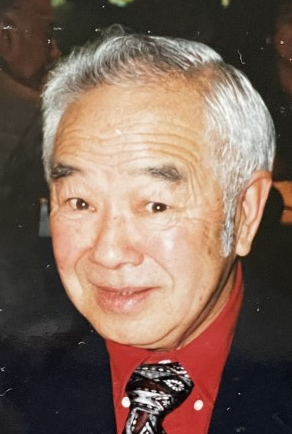
We were pleased to be able to greet Ron Suzuki as our featured speaker, whose chosen subject was the facts about, and the effects of, the internment of the Japanese community of the Lower Mainland in December 1941. Ron’s family lived in Steveston at the time of Pearl Harbour (that community constituted about two-thirds of that riverside community at that time) and the preoccupation of riparian community in that year was manifested by the fact that there were approximately 22,000 persons who were relocated into substandard housing (disused hotels and the like) in the interior, and the community’s 1,200 fishing vessels distributed among non-Japanese fishers residing in the that area of Richmond.
It would seem that Ron was - and obviously is - made of strong stuff, for while he plainly suffered grievously from the resulting mistreatment at the hands of fellow Canadians, he and his family regarded themselves as lucky in their varied relationships, even with local Ukrainians, who at the time were not much better off than the interned Japanese. Living conditions were plainly rugged, the community existed with the absolute minimum of civil rights.
Considering the trials and tribulations which Ron must have suffered in his formative years, his talk was an almost unrelenting appreciation of the manner in which life has treated him, even to the extent of his having joined the Vancouver Sunrise Rotary Club upon his retirement. And from his talk, we listeners could glean that his ‘retirement’ followed an almost unrelenting interest in the fostering and tuition of the young, both by way of encouragement to engage wholeheartedly in sporting activities and to concentrate on gaining an education. He and his family remained in the Interior until they were ‘allowed’ to return to Delta in 1951, at which time the family ‘made a deal’ with a local cannery, and were fortunate to find a "house” … which until 1953 was without electricity or hot running water.
Obviously something of a polymath, Ron, when at Delta Secondary School, gave himself the task of remembering the names of all of the approximately 2,000 pupils, and shortly thereafter became one of the founding organizers of the Vancouver East Sports League, which provided sports opportunities the young and for low-income communities, and his sterling efforts were publicly remembered when upon his retirement he was awarded a Civic Merit Award by the city, a very distinct award that, before it can be given, must receive the unanimous agreement of all the members of city council.
If Canadians are in any doubt as to the resilience of the human spirit in the face of adversity, this talk was something of an educational trip for, one suspects, a good proportion of today’s audience.
(Your correspondent should point out that many of Ron’s real achievements are omitted from this précised tale: there is much left to tell.)